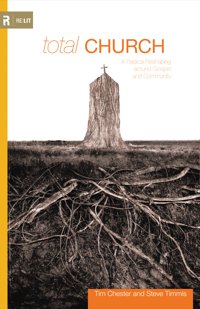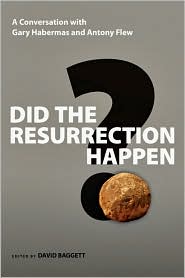Today I am pleased to introduce Tom Fuller, a pastor, worship leader, and contributor to the new
NLT Mosaic Bible project. Check the post from yesterday to read my own review of
Mosaic, and don't miss out on the giveaway a couple posts earlier to win a free copy of
Mosaic! With those points of housekeeping, I turn it over to Tom.
 Tom Fuller:
Tom Fuller: An email crossed my computer way back in February of 2008. The email was from the editor of a unique project and the invitation it contained was exciting – the opportunity to contribute a meditation to a new and unusual Bible project.
As an author I am always interested in new opportunities to use my craft. As a pastor I am always excited to help promote the teaching, understanding, and application of God’s Word. When I took a look at the subjects, the choice for me became obvious right away – worship.
My wife and I started leading worship at a then small Calvary Chapel in Santa Barbara California back in 1978. We met in the YMCA and were so poor that even to mike my guitar I had to jury rig a holder to my vocal microphone stand! That didn’t stop us from falling in love with worship. We’ve spent the last thirty-plus years learning about and helping people come into the presence of God. Having the chance to put some of those thoughts down in a permanent form was a wonderful blessing. I accepted the invitation right away. Then came the hard part: how to present worship in a meaningful way in just a few hundred words!
The guidelines for my worship meditation read: “Through worship, we find a way of reflecting back to God His glory. Worshipful environments are places where God's people can express their adoration to Him through various mediums.”
The words “worshipful environments” stuck out at me. What are some of the places and situations in the Bible where worship was the focus?
I first thought of Joshua. In Exodus 33:11 there is a great statement about Moses’ young assistant: “Thus the Lord used to speak to Moses face to face, as a man speaks to his friend. When Moses turned again into the camp, his assistant Joshua, the son of Nun, a young man, would not depart from the tent.” The “tent” was the tabernacle in the wilderness – God’s presence among His people, the children of Israel. While Moses conversed with God, Joshua stood by – he wasn’t the main focus there, God was. But when Moses left to speak God’s word to the people, Joshua stayed behind, perhaps to linger in the afterglow of God’s presence. There was something that held Joshua. He didn’t just visit God’s presence, or even just spend time with God. Joshua refused to leave God’s tent at all!
I thought of our headlong flight in and out of the presence of God on Sunday’s. We rush into church just in time for the music to start. We’re hassled and hurried and try to close our eyes and focus on the Lord but our minds are moving so fast that before we know it the music is over and the sermon has begun. Instead, what would it be like if we never left God’s presence? I’m not talking about walking around singing praise or with eyes closed. But I am talking about living a life where God is right beside you all the time – where you live in his presence. You may not be in conversation constantly but you remain in proximity to the almighty.
Next I thought about one of my favorite Bible people: Jehoshaphat. In 2 Chronicles 20 Jehoshaphat had come from a place of major error and God’s discipline. He may have thought that his positive response would save him from difficulty, but in reality it merely prepared him for the battle to come. Old enemies approached and threatened to destroy his nation. Jehoshaphat reacted with fear, and then faced God. He sounded the alarm and invited everyone to join him in seeking the Lord. The answer came from an unusual source with a very unusual method of fighting. Jahaziel came along to give God’s answer to their plea. The man was descended from Asaph, David’s worship leader, and he told Jehoshaphat that they need not fight in the battle to come. Instead of taking up spears, they were to take up songs of praise. In this wonderful miracle the singers sang and the enemies dropped like flies.
How many times do we fret and worry and panic when trouble hits? If we would only come before God with honesty, then sing before Him with all of our hearts. What victories would we see? More importantly, we could be still before Him, casting our cares to Him, running into His strong tower, being enfolded in his wings. What peace we would see in the midst of the storm?
Finally, though, my mind went to another section of Scripture – one not used often to teach on worship. At the time I was teaching through the gospel of John and remembered Mary. In John 12, as Jesus’ crucifixion approached, he joined His good friends Martha and Mary for one last meal before the trial. While others may have enjoyed the time, oblivious to what was to shortly transpire, Mary did something shocking – she took a jar of very expensive ointment and anointed the feet of Jesus, wiping them with her hair. It says “the house was filled with the fragrance of the perfume.”
There was something so all consuming about what Mary did. Yes, she anointed Jesus for burial. But thinking about all that Mary did, I could sense that something much more beautiful was taking place. I imagined her feeling the jar in her hands – a year’s wages in one flask. I could hear the sound of her breaking the jar open, I could feel the ointment on her hands as she approached the Lord. What expression was on the Lord’s face as she came near, then bent down on her knees? Then the soothing cool ointment applied to the warm flesh of a Savior – whose feet would soon feel the sharp pain of a Roman nail. The smell of the nard filling not only her nostrils, but the entire house!
It got me to thinking about the all consuming nature of worship. Jesus was to die for her –t o take the blame for her sins, and ours. Worship, I realized, isn’t just about living in God’s presence, it isn’t just about focusing on God as we see Him move on our behalf and give us peace. Worship is the expression of a whole life given wholly over to the One – the Lamb of God, who will always bear the scars of our sin, but whose hands are always held out to us in love.
That’s when I knew this would be my text. It wasn’t the most obvious choice, but an unusual passage fit this unusual project.
I hope you enjoy reading my meditation on worship. You can find it in the 10th week of Pentecost. I pray it spurs you to study, meditate, and worship – like you’ve never done before!
You can get more info on me from my website:
http://www.tomfuller.net/ or my church site:
http://www.calvarychapelnewberg.org/.
 It is clear that author Chris Seay is a huge fan of Lost. He summarizes the show well in The Gospel According to Lost and navigates what could be a confusing five seasons with ease and clarity. My wife and I have been watching Lost from Episode 1 and thus I felt qualified (and excited) to review this book. Typically with a niche book such as this, I find myself saying "this book isn't for everyone, but fans of _________ will enjoy it".
It is clear that author Chris Seay is a huge fan of Lost. He summarizes the show well in The Gospel According to Lost and navigates what could be a confusing five seasons with ease and clarity. My wife and I have been watching Lost from Episode 1 and thus I felt qualified (and excited) to review this book. Typically with a niche book such as this, I find myself saying "this book isn't for everyone, but fans of _________ will enjoy it".















































